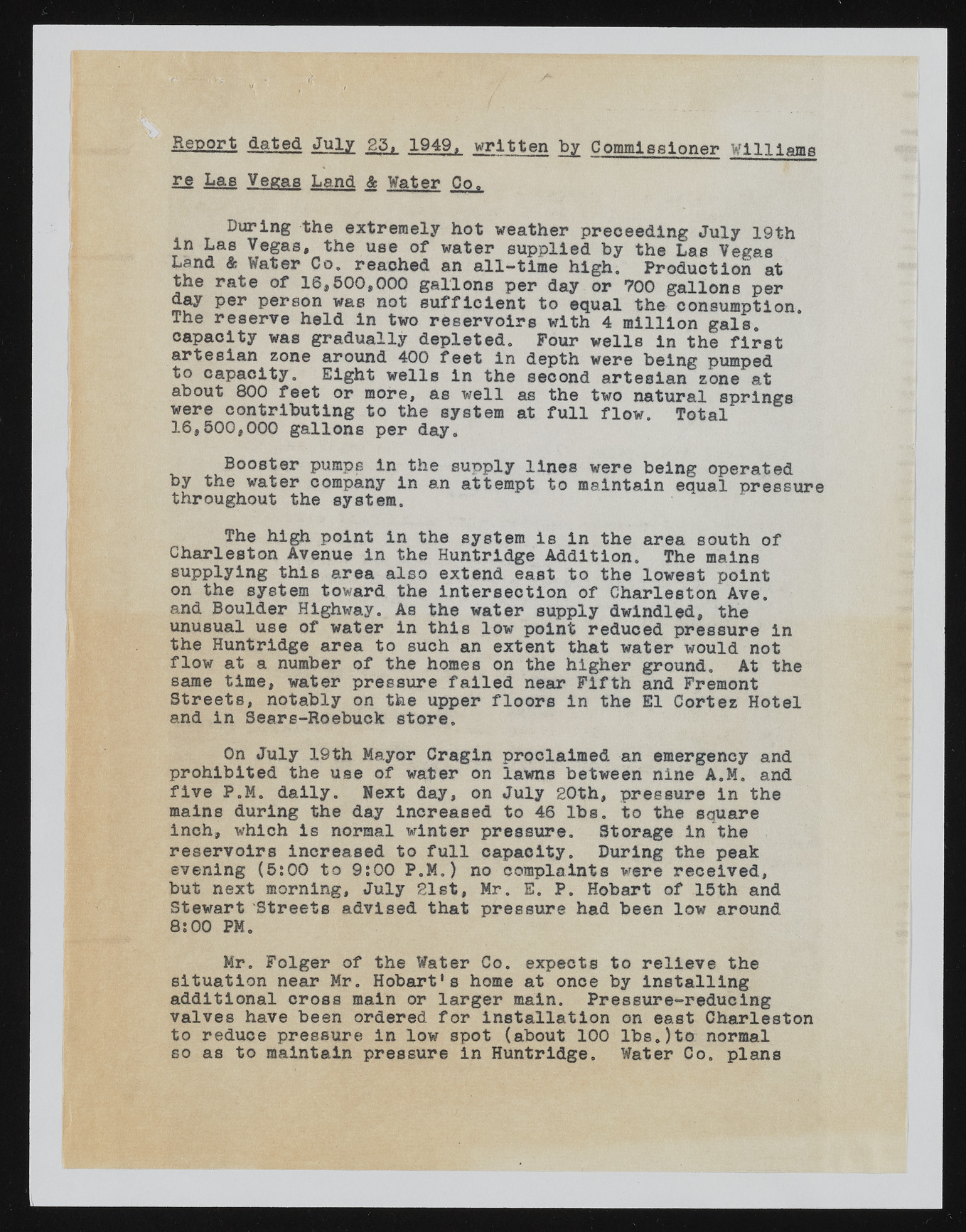Copyright & Fair-use Agreement
UNLV Special Collections provides copies of materials to facilitate private study, scholarship, or research. Material not in the public domain may be used according to fair use of copyrighted materials as defined by copyright law. Please cite us.
Please note that UNLV may not own the copyright to these materials and cannot provide permission to publish or distribute materials when UNLV is not the copyright holder. The user is solely responsible for determining the copyright status of materials and obtaining permission to use material from the copyright holder and for determining whether any permissions relating to any other rights are necessary for the intended use, and for obtaining all required permissions beyond that allowed by fair use.
Read more about our reproduction and use policy.
I agree.Information
Digital ID
Permalink
Details
More Info
Rights
Digital Provenance
Publisher
Transcription
Rejoort dated July 23^ 1949, written b£ Commissioner Williams re Lae Vegas Land & Water Co, During the extremely hot weather proceeding July 19th in Las Vegas, the use of water supplied by the Las Vegas Land & Water Co. reached an all-time high. Production at the rate of 16,500,000 gallons per day or 700 gallons per day per person was not sufficient to equal the consumption. The reserve held in two reservoirs with 4 million gals, capacity was gradually depleted. Pour wells in the first artesian zone around 400 feet in depth were being pumped to capacity. Eight wells in the second artesian zone at about 800 feet or more, as well as the two natural springs were contributing to the system at full flow. Total 16,500,000 gallons per day. Booster pumps in the supply lines were being operated by the water company in an attempt to maintain equal pressure throughout the system. The high point in the system is in the area south of Charleston Avenue in the Huntrldge Addition. The mains supplying this area also extend east to the lowest point on the system toward the intersection of Charleston Ave. and Boulder Highway. As the water supply dwindled, the unusual use of water in this low point reduced pressure in the Huntrldge area to such an extent that water would not flow at a number of the homes on the higher ground. At the same time, water pressure failed near Fifth and Fremont Streets, notably on the upper floors in the El Cortez Hotel and in Sears-Roebuck store. On July 19th Mayor Cragln proclaimed an emergency and prohibited the use of water on lawns between nine A.M. and five P.M. daily. Next day, on July 20th, pressure in the mains during the day increased to 46 lbs. to the square inch, which is normal winter pressure. Storage in the reservoirs increased to full capacity. During the peak evening (5:00 to 9:00 P.M.) no complaints were received, but next morning, July 21st, Mr. E. P. Hobart of 15th and Stewart Streets advised that pressure had been low around 8:00 PM. Mr. Folger of the Water Co. expects to relieve the situation near Mr. Hobart's home at once by installing additional cross main or larger main. Pressure-reducing valves have been ordered for installation on east Charleston to reduce pressure in low spot (about 100 lbs.)to normal so as to maintain pressure in Huntrldge. Water Co. plans

